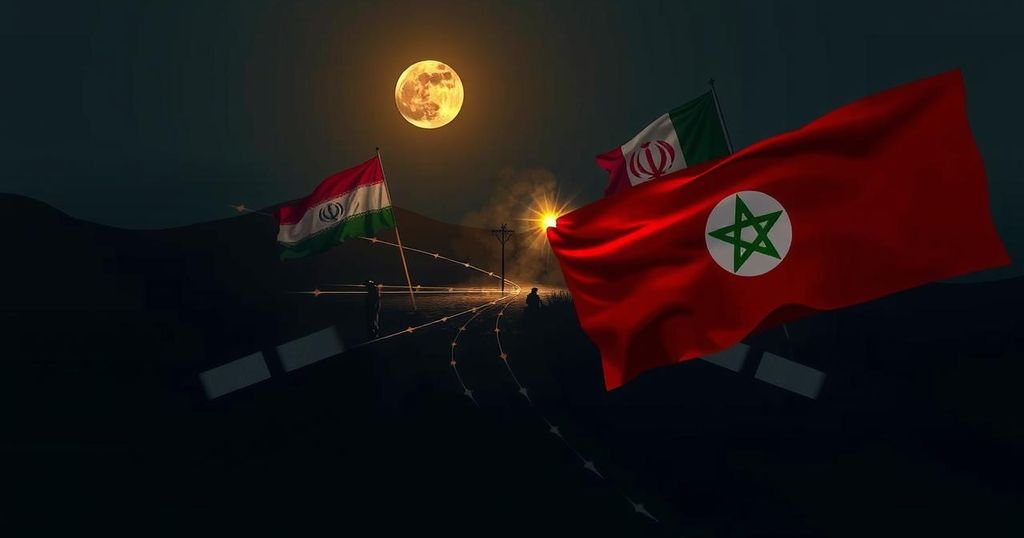Strengthening US-Morocco Relations: A Strategy to Counter Iranian Influence in Western Sahara

The article elaborates on the potential for strengthened US-Morocco relations under President Trump, emphasizing his prior recognition of Morocco’s sovereignty over Western Sahara and the importance of countering Iranian influence in the region. It highlights Morocco’s desire for clear US support beyond a vague policy, and the risks of allowing Iranian-backed groups like the Polisario Front to gain a foothold in Western Sahara. The commentary suggests a renewed focus on economic collaboration and security partnerships as pivotal for regional stability.
The election of President Donald Trump is perceived as a favorable development for US-Morocco relations, particularly due to his prior recognition of Morocco’s sovereignty over Western Sahara, a claim reaffirmed on December 10, 2020, in exchange for Morocco’s normalization of relations with Israel. King Mohammed VI expressed gratitude for this stance, viewing the United States as a longstanding ally. Looking forward, Morocco seeks to restore the momentum of these relations while Trump’s pragmatic foreign policy may require reciprocal commitments from Rabat, potentially involving increased US investment in Western Sahara. This need for collaboration is compounded by a shift in political sentiment in Morocco regarding ties with Israel amidst ongoing conflict in Gaza, highlighting the necessity for renewed US support as a counter to Iranian influence in the region.
Moroccan authorities are concerned about the Biden administration’s perceived ambivalence toward their interests, especially against the backdrop of complex US-Algerian relations, since Algeria opposes Moroccan claims to Western Sahara. Consequently, the Biden administration’s efforts to navigate these dynamics have led to a reduced US diplomatic presence in Western Sahara. Under Trump, Morocco anticipates a re-evaluation of these relations, with hopes that enhanced ties could thwart Iranian ambitions that threaten regional stability.
Iran’s support for the Polisario Front, a rebel group advocating for Western Saharan independence and believed to receive Iranian armament, poses a significant challenge that underscores the importance of strong Morocco-US relations. Moroccan officials recognize the growing threat of Iranian proxies and have forged closer ties with Israel, resulting in a billion-dollar defense deal and intensified intelligence collaboration. While the Moroccan government seeks to balance internal public opinion—including widespread support for the Palestinian cause—it remains steadfast in its strategic realignment to counter Iranian influence.
Moreover, increased tensions in Western Sahara, particularly following Morocco’s actions at the Guerguerat checkpoint, demand urgent attention from the US. Strengthening ties with Morocco would not only mitigate the Iranian influence in the Sahel but also consolidate a multinational alliance involving key allies such as Spain and France to address the broader implications of instability in North Africa.
In reinforcing its partnership with Morocco, the US has a pivotal opportunity to foster regional stability and enhance economic integration through initiatives like the Dakhla harbor project. The prior diplomatic recognition by Trump sets the stage for a proactive approach to resolving the Western Sahara conflict in pursuit of strategic and economic stability in the region.
The article discusses the implications of President Trump’s electoral victory on US-Morocco relations, focusing primarily on the contentious issue of Western Sahara. The relationship encompasses Morocco’s sovereignty claims, security partnerships, and the existing threat of Iranian-backed influences in the region through groups like the Polisario Front. The historical context includes the 2020 recognition of Moroccan sovereignty by the Trump administration, which was tied to Morocco’s normalization of relations with Israel and critical shifts in regional politics due to ongoing conflicts in the Middle East. The article contextualizes the importance of maintaining strong US-Morocco ties in light of growing concerns about Iranian expansionism and the geopolitical landscape in North Africa and the Sahel.
In conclusion, the evolving political landscape following President Trump’s election presents a crucial opportunity to reinforce US-Moroccan relations, particularly concerning the Western Sahara issue. By aligning diplomatic efforts with Morocco while countering Iranian influence, the incoming administration can work towards achieving stability in the Sahel, fostering economic growth through strategic partnerships, and addressing long-standing conflicts that impact regional security.
Original Source: www.atlanticcouncil.org








